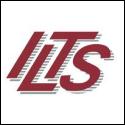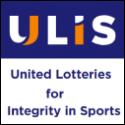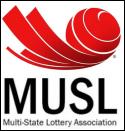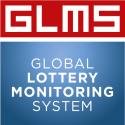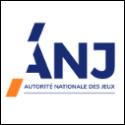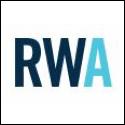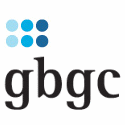Reimbursement of Losses in Unauthorized Sports Betting
Hearing date on May 2, 2024 at 11:30 a.m. in the matter of I ZR 88/23 (reimbursement of losses in unauthorized sports betting)
Date: May 2, 2024
Accreditation deadline: April 30, 2024 10:00 A.M
Camera public: Yes

The 1st Civil Senate of the Federal Court of Justice has to decide whether a sports betting organizer who did not have the necessary license from the competent authority domestically must reimburse a player’s lost betting stakes.
This matter differs significantly from the proceedings under file number I ZR 53/23, which the Senate has suspended (see press release No. 9/2024 of January 17, 2024), in that the subject matter here is not online poker games , which were subject to the total ban of Section 4 Paragraph 4 of the State Treaty on Gambling in the version that came into force on July 1, 2012 and is valid until June 30, 2021 (GlüStV 2012), but online sports betting for which the defendant organizer has a license in accordance with Section 4 Paragraph 5, Sections 4a, 10a GlüStV 2012.
In the proceedings with the file number I ZR 90/23, which also concerned the reimbursement of losses in illegal sports betting (see press release No. 8/2024 of January 17, 2024), the hearing date was scheduled for March 7, 2024 was repealed and the proceedings were ordered to be suspended after the parties had requested this due to settlement negotiations (see press release No. 46/2024 of March 4, 2024).
Facts:
The defendant, based in Austria, offers sports betting on the Internet. The plaintiff took part in the defendant’s sports betting in 2018. During this period, the defendant did not have permission to organize sports betting from the German authorities. She had applied for such a concession. At the defendant’s request, the Wiesbaden Administrative Court obliged the responsible authority to grant the defendant the license (see VG Wiesbaden, judgment of October 31, 2016 – 5 K 1467/14.Wi). This took place in 2021.
The plaintiff claims that the sports betting is inadmissible and the betting contracts are invalid. In particular, the defendant’s sports betting offer was not permitted because it met the requirements of Section 4 Paragraph 5 No. 2 GlüStV 2012 (monthly maximum stake per player) and Section 4 Paragraph 5 No. 5 GlüStV 2012 (separation between sports betting and others Gambling) wasn’t enough. The defendant also offered a so-called cash-out function, which was not permitted.
With his lawsuit, the plaintiff demanded that the defendant repay the payments made to him in the amount of the losses suffered of €11,984.89, plus interest.
Process history so far:
The regional court dismissed the lawsuit. In response to the plaintiff’s appeal, the appeal court sentenced the defendant as requested except for part of the interest claim (OLG Dresden, BeckRS 2023, 12231). It assumed that the international jurisdiction of the German courts resulted from Article 18 Paragraph 1 and Article 17 Paragraph 1 Letter c of the Brussels Ia Regulation and that Article 6 Paragraph 1 of the Rome I Regulation was German substantive law applicable.
The plaintiff’s claim arises from the right to enrichment according to Section 812 Paragraph 1 Sentence 1 Case 1 BGB. The defendant obtained the plaintiff’s payments without legal grounds. It violated the prohibition law of Section 4 Paragraph 4 GlüStV 2012 because it did not have the required license in accordance with Section 4 Paragraph 5 and Section 10a GlüStV 2012 at the relevant time when sports betting was offered. The ban is in accordance with Union law and the violation of it would, according to its purpose, lead to the nullity of the betting contracts in accordance with Section 134 of the German Civil Code (BGB). Any procedural violations in the concession granting process could not undermine the ban. Nothing different follows from the judgment of the Wiesbaden Administrative Court that the defendant obtained on October 31, 2016, according to which she would have been granted a sports betting license for a period of seven years. No exceptions are made in the event of a license being applied for and not (yet) granted without justification. Even an abstinence from repressive measures, which is required for reasons of Union law, cannot be equated with official approval. Furthermore, the defendant cannot claim against the plaintiff that the responsible administrative authority did not take action against the violation but rather tolerated it.
In particular, the claim for repayment is not excluded according to Section 817 Sentence 2 BGB. The defendant did not provide the proof of the requirements of this provision that was incumbent upon it. Furthermore, it is not applicable if the maintenance of the unlawful situation – as here – is incompatible with the meaning and purpose of the prohibition law and therefore cannot be accepted by the legal system.
With the appeal approved by the appeal court, the defendant is pursuing its request for a complete dismissal of the lawsuit.
Lower courts:
LG Görlitz – judgment of August 3, 2022 – 1 O 452/21
OLG Dresden – judgment of May 31, 2023 – 13 U 1753/22
The relevant regulations are:
§ 4 GlüStV 2012
(1) Public games of chance may only be organized or arranged with the permission of the responsible authority of the respective country. Organizing and brokering without this permission (unauthorized gambling) as well as participating in payments in connection with unauthorized gambling are prohibited.
(…)
(4) Organizing and arranging public games of chance on the Internet is prohibited.
(5) In deviation from paragraph 4, in order to better achieve the objectives of Section 1, the states may allow their own distribution and brokerage of lotteries as well as the organization and brokerage of sports betting on the Internet if there are no reasons for refusal in accordance with Section 4 Paragraph 2 and the following requirements are met are:
(…)
No. 2 The maximum stake per player must not exceed an amount of 1,000 euros per month. A different amount can be set in the permit to achieve the objectives of Section 1. Winnings may not be offset against player stakes. Compliance with the loan ban is ensured. When registering, players are asked to set an individual daily, weekly or monthly deposit or loss limit (self-limitation). In addition, players must be given the opportunity to redefine daily, weekly or monthly deposit and loss limits at any time. If a player wants to increase the deposit or loss limit, the increase will only take effect after a protection period of seven days. If deposit or loss limits are reduced, the new limits for new gaming stakes take effect immediately.
(…)
No. 5 Betting and lotteries are neither offered via the same internet domain nor are there any references or links to other games of chance.
(…)
§ 134 BGB
A legal transaction that violates a legal prohibition is void unless the law states otherwise.
§ 812 Paragraph 1 Sentence 1 BGB
Anyone who obtains something without legal justification through the services of another or in any other way at their expense is obliged to hand it over to them.
§ 817 BGB
If the purpose of a service was determined in such a way that the recipient violated a legal prohibition or morality by accepting it, the recipient is obliged to return it. Repayment is excluded if the person providing the service is also guilty of such a violation, unless the service consisted of entering into a liability; What has been paid to fulfill such an obligation cannot be reclaimed.
SOURCE: Federal Court of Justice.
Tags: sports betting, Federal Court of Justice, reimbursement of losses















